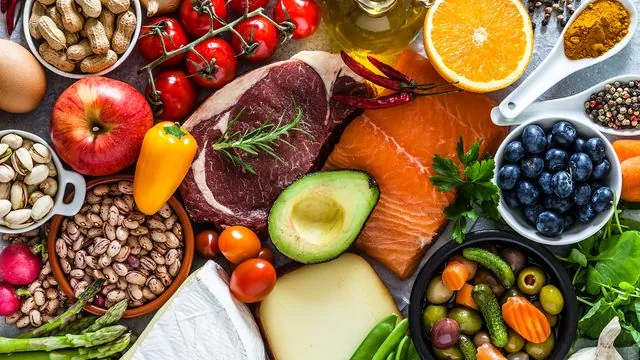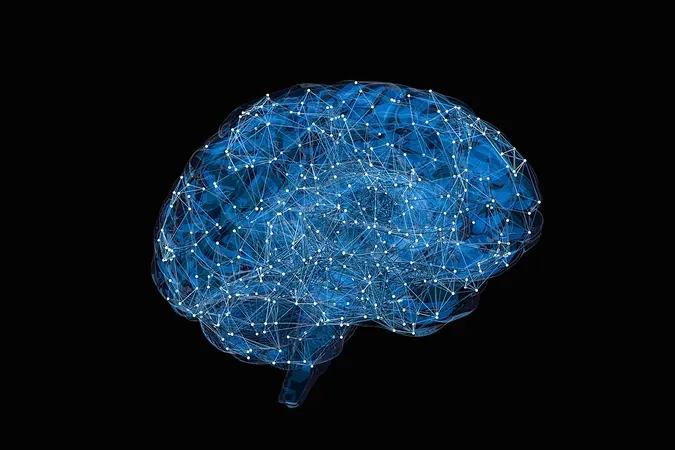
Unlocking the Secrets of Hunger: How Our Brain Initiates Meals
2024-12-23
Author: Jacob
Ever wonder why you reach for that snack when your stomach growls? A groundbreaking study conducted by researchers at Baylor College of Medicine and the University of Texas Health Science Center at Houston sheds light on the intricate brain circuits and chemical messengers that govern our hunger and the act of starting a meal. Published in the journal *Metabolism*, this research could lead to revolutionary therapies in the fight against obesity—a global health crisis affecting millions.
The Role of Serotonin in Appetite Control
Dr. Yong Xu, an expert in pediatric nutrition and a leading figure in this study, emphasized the pivotal role of serotonin, a crucial neurotransmitter in our brains known to suppress appetite. "Serotonin manipulation has been foundational in developing drugs aimed at controlling food intake and treating obesity," he remarked. But the catch? Many of these medications have been pulled from the market due to adverse side effects, creating a pressing need for deeper insights into our brain's hunger regulation.
Investigating Brain Circuits and Hunger
The study honed in on the lesser-explored facets of serotonin's influence on our eating habits. Researchers wanted to dissect the brain circuits that control serotonin-producing neurons and how these circuits can be activated or inhibited, effectively fine-tuning our appetite. “Our goal is to better grasp this complex system to pave the way for innovative feeding regulations," Xu stated.
Key Mechanisms of Meal Initiation
At the core of this research is the dorsal Raphe nucleus (DRN), which produces serotonin and sends signals to various brain regions, notably the arcuate nucleus of the hypothalamus (ARH). The team discovered that when animals experience hunger, their serotonin-producing neurons are suppressed by two neurotransmitters: GABA and dopamine. This suppression leads to decreased serotonin levels, facilitating meal initiation. As the animals eat and reach a sense of fullness, the inhibitory signals diminish, boosting serotonin levels once again to curb further feeding.
Synergistic Effects of GABA and Dopamine
A significant finding from this research is the synergistic effect between GABA and dopamine. The combination of these neurotransmitters provides a more potent inhibition of serotonin-producing neurons than either could offer alone. This discovery enhances our understanding of the finely-tuned balance the brain maintains over food intake.
Implications for Obesity Treatment
Understanding these mechanisms is crucial, especially as obesity continues to rise globally. By decoding the brain's hunger signals, researchers hope to develop better-targeted obesity treatments, potentially changing the landscape of how we tackle eating disorders and weight management in the future.
Future Directions in Research
Looking ahead, Dr. Xu expressed an eagerness to identify additional signals that govern other phases of eating behavior. This could open doors to even more comprehensive treatments for those struggling with obesity and related health issues.
Stay tuned for more updates on this ongoing research, as it could very well redefine our approach to meal initiation and appetite control!









 Brasil (PT)
Brasil (PT)
 Canada (EN)
Canada (EN)
 Chile (ES)
Chile (ES)
 España (ES)
España (ES)
 France (FR)
France (FR)
 Hong Kong (EN)
Hong Kong (EN)
 Italia (IT)
Italia (IT)
 日本 (JA)
日本 (JA)
 Magyarország (HU)
Magyarország (HU)
 Norge (NO)
Norge (NO)
 Polska (PL)
Polska (PL)
 Schweiz (DE)
Schweiz (DE)
 Singapore (EN)
Singapore (EN)
 Sverige (SV)
Sverige (SV)
 Suomi (FI)
Suomi (FI)
 Türkiye (TR)
Türkiye (TR)